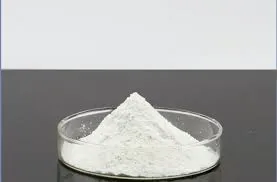- Afrikaans
- Albanian
- Amharic
- Arabic
- Armenian
- Azerbaijani
- Basque
- Belarusian
- Bengali
- Bosnian
- Bulgarian
- Catalan
- Cebuano
- Corsican
- Croatian
- Czech
- Danish
- Dutch
- English
- Esperanto
- Estonian
- Finnish
- French
- Frisian
- Galician
- Georgian
- German
- Greek
- Gujarati
- Haitian Creole
- hausa
- hawaiian
- Hebrew
- Hindi
- Miao
- Hungarian
- Icelandic
- igbo
- Indonesian
- irish
- Italian
- Japanese
- Javanese
- Kannada
- kazakh
- Khmer
- Rwandese
- Korean
- Kurdish
- Kyrgyz
- Lao
- Latin
- Latvian
- Lithuanian
- Luxembourgish
- Macedonian
- Malgashi
- Malay
- Malayalam
- Maltese
- Maori
- Marathi
- Mongolian
- Myanmar
- Nepali
- Norwegian
- Norwegian
- Occitan
- Pashto
- Persian
- Polish
- Portuguese
- Punjabi
- Romanian
- Russian
- Samoan
- Scottish Gaelic
- Serbian
- Sesotho
- Shona
- Sindhi
- Sinhala
- Slovak
- Slovenian
- Somali
- Spanish
- Sundanese
- Swahili
- Swedish
- Tagalog
- Tajik
- Tamil
- Tatar
- Telugu
- Thai
- Turkish
- Turkmen
- Ukrainian
- Urdu
- Uighur
- Uzbek
- Vietnamese
- Welsh
- Bantu
- Yiddish
- Yoruba
- Zulu
सप्टेंबर . 28, 2024 17:03 Back to list
Effective Injectable Ivermectin Treatment for Cattle Health and Parasite Control
The Use of Injectable Ivermectin in Cattle An Overview
Ivermectin, an antiparasitic medication, is widely utilized in veterinary medicine, particularly for the treatment and prevention of parasitic infestations in cattle. As one of the most effective drugs in combating various internal and external parasites, injectable ivermectin has gained significant attention among livestock producers for its effectiveness, convenience, and broad spectrum of action.
Understanding Ivermectin
Ivermectin belongs to the class of drugs known as macrocyclic lactones. It works by interfering with the nervous system and muscle function of parasites, leading to paralysis and death. This mechanism of action is highly effective against a range of parasites, including nematodes (worms) and arthropods (insects and mites). In cattle, ivermectin is predominantly used to address conditions caused by these parasites, which can lead to weight loss, poor growth, and overall decreased productivity.
Formulation and Administration
Injectable ivermectin is typically administered subcutaneously or intramuscularly, making it a practical option for livestock producers. The formulation allows for a quick absorption into the bloodstream, resulting in rapid action against the parasites. Dosing is generally straightforward, based on the animal's weight, making it easier for farmers to ensure that each animal receives the appropriate amount of medication.
Benefits of Injectable Ivermectin
One of the major benefits of injectable ivermectin is its efficacy in controlling a wide array of parasites—both internal parasites like roundworms and external parasites such as lice and mites. This broad-spectrum capability is particularly advantageous in bovine management, where parasitic infestations can significantly impact the health and productivity of the herd.
Moreover, injectable ivermectin has a high safety margin when used as directed. It’s important to follow the manufacturer's guidelines to mitigate the risk of adverse effects. When properly administered, injectable ivermectin is well-tolerated and poses minimal risk to cattle, which adds to its appeal as a go-to treatment option.
cattle injectable ivermectin

Strategic Use in Herd Management
Utilizing injectable ivermectin as part of a comprehensive herd management program can lead to improved animal health and productivity. Regular administration can help maintain low parasite burdens, which is crucial for ensuring optimal growth rates and milk production in dairy cows. Additionally, consistent use can reduce the likelihood of resistance development, a common concern with antiparasitic treatments.
Farmers often combine injectable ivermectin with other management practices, including rotational grazing and good hygiene protocols, to further minimize parasite exposure. This integrated approach not only enhances the effectiveness of the treatment but also promotes sustainable farming practices.
Considerations and Future Directions
Despite its effectiveness, reliance solely on injectable ivermectin should be approached with caution. The potential for parasite resistance necessitates ongoing monitoring and strategic changes in treatment protocols. Many veterinarians recommend rotating different classes of antiparasitics and integrating non-chemical control methods to mitigate resistance.
Research continues into the development of newer formulations and alternative treatments that can complement or replace injectable ivermectin. Innovations may include combinations with other medications or the exploration of biopesticides that target parasites with different modes of action.
Conclusion
Injectable ivermectin is a vital tool in the management of parasitic infections in cattle. Its broad-spectrum efficacy, ease of administration, and safety profile make it a preferred choice among livestock producers. However, as with all medical treatments, strategic use and ongoing research are essential to ensure the longevity of its effectiveness. Implementing a holistic approach to parasite management not only safeguards the health of the cattle but also secures the productivity and profitability of livestock operations. As the agricultural landscape continues to evolve, maintaining awareness of new developments in antiparasitic treatments will be crucial for future success in cattle management.
-
Guide to Oxytetracycline Injection
NewsMar.27,2025
-
Guide to Colistin Sulphate
NewsMar.27,2025
-
Gentamicin Sulfate: Uses, Price, And Key Information
NewsMar.27,2025
-
Enrofloxacin Injection: Uses, Price, And Supplier Information
NewsMar.27,2025
-
Dexamethasone Sodium Phosphate Injection: Uses, Price, And Key Information
NewsMar.27,2025
-
Albendazole Tablet: Uses, Dosage, Cost, And Key Information
NewsMar.27,2025













